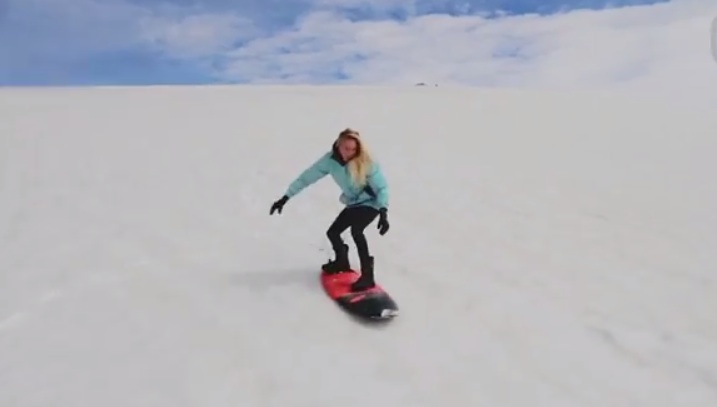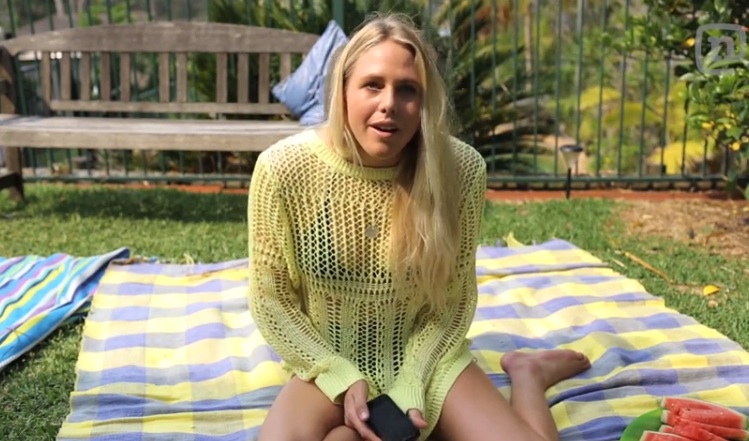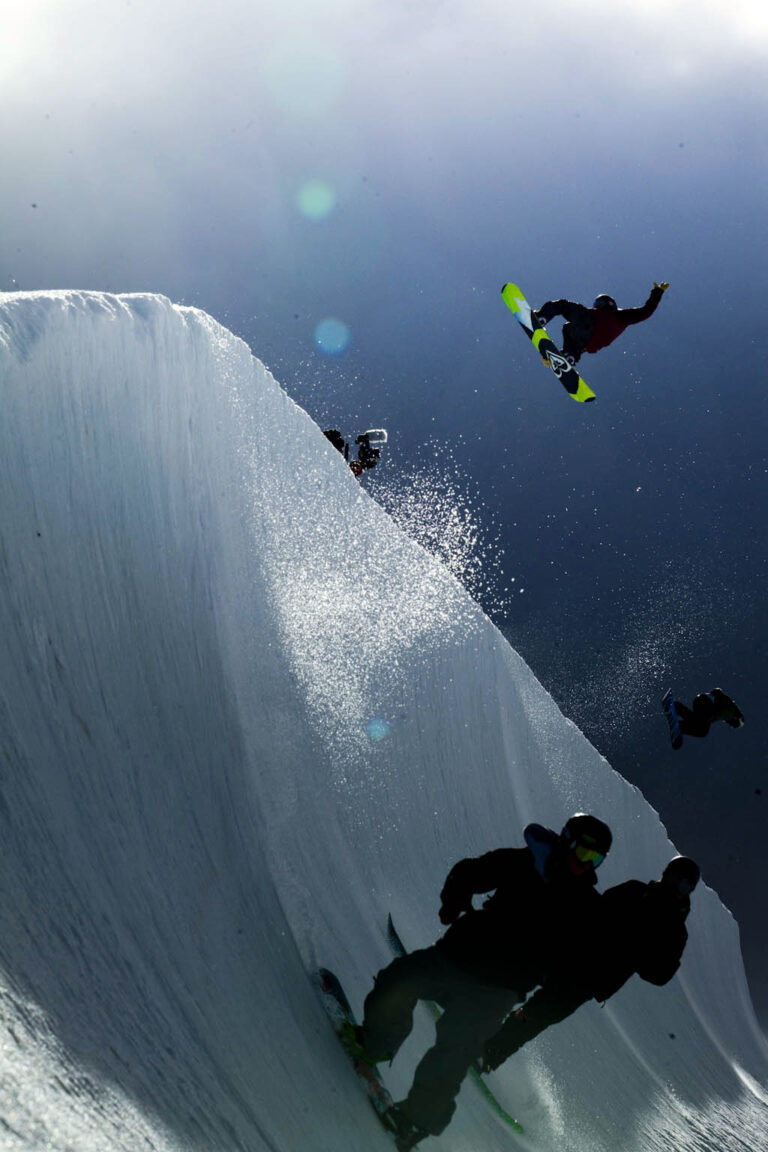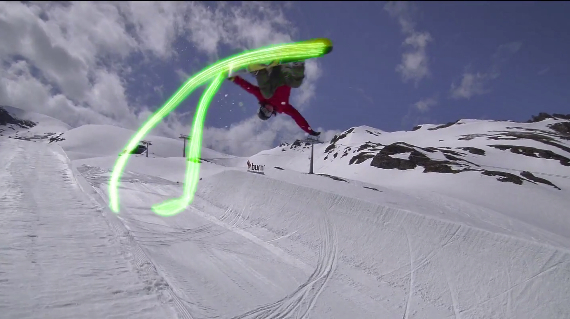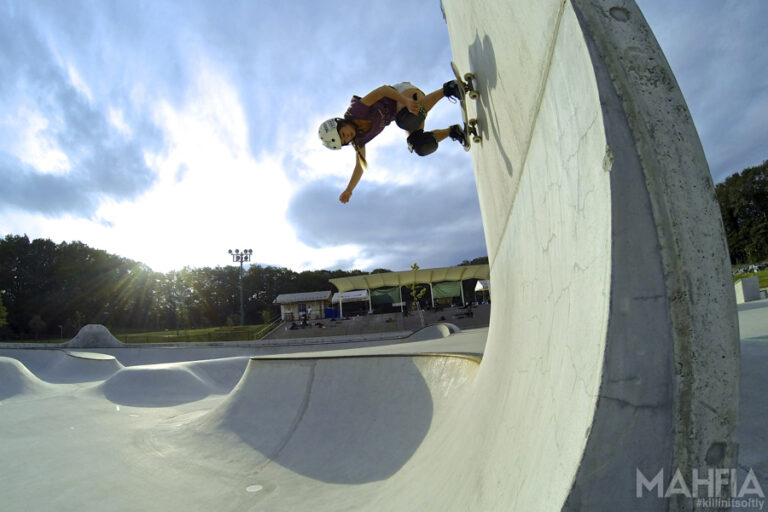
Last week, while merrily following a google trail instead of doing whatever it was we were supposed to be doing we happened upon a piece of research by the American academic Anthony Kwame Harrison titled Black Skiing, Everyday Racism and the Racial Spatiality of Whiteness. We’ve always been struck by how white a sport skiing is, and snowboarding for that matter, albeit to a lesser extent, which we’ll discuss more later.
We chatted to Kwame about his research, why black skiers like him get comments like “I have never seen anyone ski like you before” and stereotyped as not liking the cold, plus whether anything can be done to change the status quo
[NB: Kwame’s work is written from a US perspective but there is still lots of insight to be gleaned from a UK and Euro viewpoint]
What lead you to study everyday racism with relation to skiing?
The story is really quite personal. I grew up in New England, USA and grew up skiing. I have a large group of school friends, mostly male, who are all excellent skiers. Many of them skied in college and they continue to make annual trips to Jay Peak or places out west. When I went to graduate school, I took a break from skiing. There just didn’t seem to be the time and I was in a new place.
A few years after I moved to Virginia and started teaching at Virginia Tech, a colleague invited me to go skiing with him and his son. This was my first time skiing in about ten years and I immediately noticed two things. First, that I loved skiing—and I seriously wondered how I allowed ten (or so) years to go by without skiing. Second, that once I was away from the ski areas in Western Massachusetts, where many people knew me and I was constantly surrounded by groups of very good skiing friends, people marvelled at my skiing ability and were curious about how I got to be such a good skier.
Now, I’m a pretty good skier (my friends in New England might say otherwise) but I am not so great that I deserved this special attention. The very first time I went skiing with my colleague, a mother and daughter came up to me and commented on how much they “loved” to watch me ski; someone else said, “I have never seen anyone ski like you before.” And on the occasions when I would ski alone, other great skiers would ride the lifts with me and slyly or sometimes very straightforwardly inquire about where I cut my “chops.”
As an African American, I can intuitively sense when I am being judged through the lens of race—especially when something happens this regularly. The great scholar-activist W.E.B. DuBois referred to this as “double consciousness”—that is, the duality of being Black in America, the ability to look at one’s self through the eyes of others. So this peculiar experience of being a good Black skier, removed from the community of skiers that I grew up around, pushed me to look at the relationship between race and skiing.
Everyday racism is a concept I borrow to explain how power relations, in this case surrounding race, are reproduced in everyday situations. I’m sure there are similar concepts that can be applied to gender. Some might label it, everyday male chauvinism. The point is, race-based power is at work but it has become normalised to the point that people don’t even question it. I surveyed Skiing magazine and other ski industry publication and was surprised to see how rarely the issue of race was brought up in discussions of skiing and diversity. In the circles I travel, race is usually at the forefront of conversations on diversity.
What did you conclude were the main causes of it?
I cannot say I have definitive conclusions. In many ways, my article was more of an effort to get the ball rolling. Black skiing is occasionally the topic of a public interest piece in a newspaper—and most of these focus on the National Brotherhood of Skiing —but I haven’t seen any real research on it. There are a few excellent academic pieces on Whiteness and skiing that I reference in my article—I’m particularly a fan of Annie Gilbert Coleman. She also has a great piece on the history of women skiers/snowboarders. It’s called “From Snow Bunnies to Shred Betties.”
I should also say that as a qualitative researcher, I do not always find specific answers. I rather see myself as contributing to understanding the complexity of an issue. In terms of the typical explanations for why Black people don’t ski: I flat out reject the notion that Black people do not like the cold; I give a slight nod to the economic factor—skiing does cost money but through various ski-resort packages you can ski regularly for a lot less than many people realise. One important factor is the shift in the ski industry landscape from numerous small mountains—some of which were located in close proximity to metropolitan areas—to a handful of major resorts (see here: http://www.nelsap.org/). One of the mountains I grew up skiing on had one T-bar and six trails, and a season pass was thirty-five dollars. In the new industry structure, most skiers make the conscious decision to invest in a ski vacation. It’s not something someone tries out for an afternoon. The investments of time and money needed for a ski vacation, which are far more considerable than driving forty-five minutes to ski at a small mountain for the day, amplifies the distinction between people who imagine skiing as a viable leisure option and people who do not. [NB British skiers, aside from those lucky enough to live close to Scottish resorts, have never really had such an option]
This, in turn, gives more power to the symbols presented in the media, the ski industry, and elsewhere about who rightfully fits the skier profile. So that’s one important point. We should also keep in mind that skiing is often passed on generationally—parents who ski have children who ski. So some intervention may be needed.
Among UK skiers and snowboarders class might perhaps be a cause, is that the same in the US, historically at least?
I certainly think class is a factor, particularly historically. And as I mentioned above, to the extent that skiing is passed on generationally, historical patterns will be reproduced in the present. But I’ve been told that class distinctions are more significant in the UK as opposed to the US, so it may be tricky to compare. Ultimately, I don’t want to discount the issue of class but I hope to push researchers to look beyond that.

What are the implications of these inbalances and do you have any suggestions of ways to correct them?
I think skiing is an excellent arena through which to examine everyday racism. So there is a broad sociological significance to work in this area. More specific to skiing, I think that the ski industry has an opportunity to tap into an additional market that has thus far been underrepresented in everyday skiing. But we also have to ask if this is what the ski industry—and I realise I am treating it as one conscious entity—really wants? There are numerous accounts of Black shoppers being harassed while shopping in high end retail outlets, or black motorists being stopped while driving through certain majority white neighbourhoods. As a whole, the ski industry may think it makes better business sense to keep skiing overwhelmingly white and to keep white skiers coming back, as opposed to making a concerted effort to recruit Black skiers. In terms of Black people, I think skiing is a wonderful sport that you can partake in with your entire family and continue to do into your older years. It’s about the ability to pursue all forms of happiness. I think it’s a shame that more Black people don’t even consider it as something to try out.
Black ski organisations [in the US] like the National Brotherhood of Skiers have made efforts to recruit more Black people to the sport. But in my article, I’m critical of their collective Black-ski-even approach—although I understand that it follows from an historical pattern of Black approaches to leisure which developed in the face of overt racism. Basically, I’m not confident that having special “black ski week” events is the best long-term strategy for integrating everyday skiing. Having said that, I am not a member of a Black ski organisation, therefore I can only say so much about what they do.
Do you have any thoughts on surfing and snowboarding?
I think there is similar, if less profound, symbolism at work suggesting that Black people don’t swim or don’t participate in water sports. But while we’re talking about surfing, I should clarify that my article focuses primarily on skiing and not snowboarding. At one level I think skiing and snowboarding can be treated similarly, but there is a section of my piece where I discuss snowboarders as a racialised “other” to skiers. A good deal of sociological work has been done on snowboarding which flutters around the topic of race but doesn’t quite get there. You can look at efforts to segregate skiers and snowboarders. Studies have shown that snowboarders are far more tolerant of sharing the mountain with skiers than vice versa. It’s possible some of these tensions have settled in the past five or ten years. Additionally, you can examine the skier versus snowboarder aesthetic. I’m basically repeating what other researchers have argued, but according to some theorists the skier represents the tight, disciplined body; I would say the epitome of whiteness, whereas the snowboarder—perhaps drawing from urban skateboarding the most—has historically been marked by untamed hair, loose clothes, and loud music. Notice that the 2010, US Olympic snowboarding uniform featured what was meant to look like baggy jeans. Granted there is a combination of hip-hop and grunge to the whole aesthetic, but it certainly is more deviant, racialised, and unruly than the images we associate with skiing. I have not seen any official statistics on snowboarding’s racial demographics, however, I have read that although still overwhelmingly white, snowboarding is a bit more racially diverse than skiing.
You mentioned the issues of gender inbalance in sport which is something we cover quite a lot. Do you see any parallels with that and your work on racism?
I do in terms of the everyday operations of power. What’s different is that women ski and snowboard in comparably large numbers, and I don’t think that anyone would argue that having more women skiing could lead to a decrease in the number of men that ski. However, in terms of skiing prestige—where skiing the groomers all day has become passé and “real skiers” attempt to go out-of-bounds—there is certainly gendered symbolism at work. I would recommend the Coleman article I mentioned above—it’s in a book called Seeing Nature Through Gender—and the work of Kyle Kusz on masculinity and extreme lifestyle sports. Gendered power in snowboarding may operate slightly differently since I imagine that “real snowboarders” can be found in the terrain park.
Does the media reflect these inbalances or encourage them to be self-fulfilling prophecies in your opinion?
I would say both. The media plays a major role in shaping who all people envision as rightfully belonging on the slopes and, in contrast, whose presence on the slopes people see as requiring some explanation. I was actually surprised to see how non-existent the coverage of Black skiing was in the major ski magazines I looked at. However, alternative media forms exist and have the potential to appeal to largely underserved audiences. I’ve only recently learned about Cooler, but I think magazines and websites like yours play an important role for (and have an important responsibility to) young women who snowboard. This is something I meant to mention in response to your question about what can be done.
Finally, while I was finishing my article one reviewer suggested that I include the piece entitled “Black Men Ski” by the comedian Stew. I didn’t know how to integrate it into a published academic piece but this seems like a good forum for sharing it. Forms of media like this can make important social commentaries as well:
To read Black Skiing, Everyday Racism & the Racial Spatiality of Whiteness head here
We’d be really interested to hear what you think either below the line or on our facebook or twitter. Is skiing welcoming enough to non-whites and how about snowboarding? If not what more could be done?

